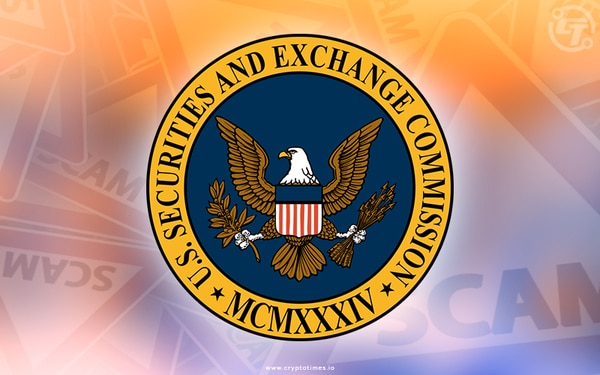A recent cryptocurrency market scandal unfolded as the United States Securities and Exchange Commission (SEC) initiated legal proceedings against John A. DeSalvo, a former lieutenant with the New Jersey Department of Corrections.
On August 23rd, a cryptocurrency scam came to light as the US SEC filed charges against John A. DeSalvo for purportedly singling out police officers and first responders. During the period from November 2021 to May 2022, he reportedly managed to amass $623,388 from 222 investors by promoting and selling his self-created Blazar token.
As per the legal document, DeSalvo asserted that his Blazar token would serve as a replacement for conventional state pension systems for police officers, firefighters, and paramedics. He claimed it would yield a more substantial return compared to traditional assets.
Highlighted in the legal paperwork is the description of the Blazar token’s whitepaper, which articulates that “the first token or coin that is able to be purchased through payroll deduction every week,” and stated that “it will be taken out of one’s weekly earnings pretax similar to payment into a pension, 401k, IRA or any other retirement savings plans.”
Getting the trust of investors, DeSalvo falsely asserted during his investor pitches, “We became a securitized token with the SEC,” even though he had never actually secured registration from the regulatory authority.
Furthermore, DeSalvo presented a significant stipulation to potential investors, outlining an initial “lock-up” period for insiders. However, he deviated from this condition and proceeded to personally sell a substantial portion — almost 41 billion Blazar tokens, amounting to $51,000 in value.
Consequently, by May 22nd, the value of the Blazar token had crashed by nearly 100%, occurring in less than a fortnight after DeSalvo’s sale on PancakeSwap. This led to substantial losses for the investors.
In addition, the legal SEC’s filing emphasized that “DeSalvo’s massive volume of sales placed downward pressure on the Blazar Token’s trading price and drained PancakeSwap of the majority of its liquidity in the investment, resulting in its collapse and substantial investor losses.”
Also Read: SEC Files Lawsuit Against Titan Global Capital Management






